With the first phase of construction completed in the Stegerwaldsiedlung, all that remains to do is to connect the Siedlungsmanagement software. In the world of data, we are also working with a broad range of Cologne's open data to integrate into the urban cockpit. Lastly, our mobility stations - featuring carsharing and electric vehicle charging - are operational. Read on for more details and pictures!
GrowSmarter on the “Tag des guten Lebens/ Day of Good Life”
The “Day of Good Life” is a family and neighbourhood festival for the entire district of Deutz, just south of our project area Mülheim. To show how a district can evolve, thirty streets in Deutz and the Deutzer Bridge across the river Rhine were closed to traffic. On Sunday, 18 June approximately 150,000 visitors came to the Day of Good Life event, a visitor record. All activities had the aim of testing a joint venture on how life in Deutz could be made sustainable and future-oriented over the coming decades. At the GrowSmarter booth, visitors were particularly interested in alternative mobility solutions. The industry partner Cambio CarSharing offered free registration, an attractive that offer was taken advantage of by 37 people.
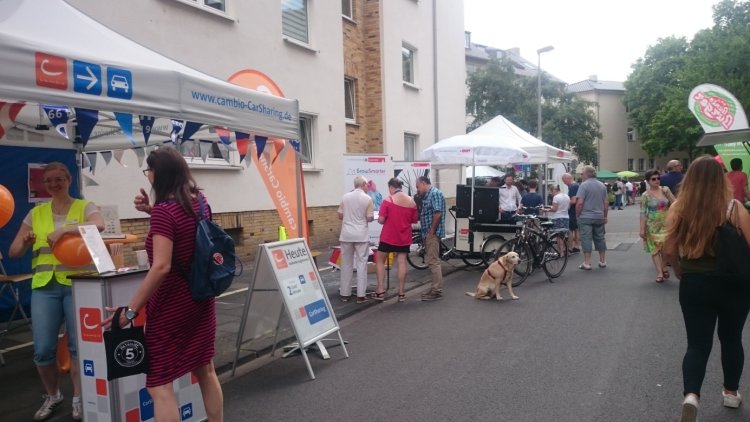
The “Day of Good Life” event in Deutz
Universities
Students and instructors from three foreign universities would soon like to visit Cologne for a knowledge exchange. The representatives from the University of Barcelona know the GrowSmarter activities in their own city and would like to see how Cologne is implementing their measures. Students at the University of Basel are very interested in learning more about the development of open data platforms.
Exchange of experts with a delegation from China
Study Visit on July 6, 2017
The German state of North Rhine-Westphalia (NRW) and the Republic of China have reached an agreement on environmental cooperation. China is interested in implementing the objectives of the Paris Climate Protection Agreement. The representatives of the provinces and municipalities are important players in this process of change. The “Deutsche Gesellschaft für Internationale Zusammenarbeit” (GIZ) (Association for International Cooperation) organises regular exchange programs with the support of the German Ministry of the Environment. The aim of the program is the acquisition of new knowledge and the exchange with experts, as well as the deepening of old contacts and the establishment of new contacts for the purpose of the cooperation between North Rhine-Westfalia and China. The focus of the trade exchange and the partner province representatives from Sichuan, Shanxi and Jiangsu was “Emission Control, Air Pollution and Renewable Energies". The representatives were keen on understanding more about GrowSmarter energy measures with the aim to examine which of the measures could be implemented and replicated in China. The delegation was made up of company officials and municipal representatives as well as the regional NRW government guests.
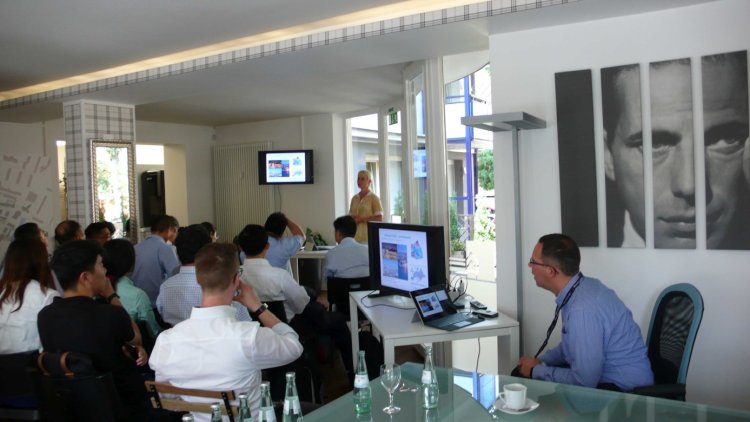
Welcome and presentation in the Stegerwald settlement office
The project was presented to the visitors in the Stegerwald neighbourhood office. The project`s integrated approach was new to the visitors. This aspect was of paramount importance to representatives of municipalities in order to achieve sustainable city planning. RheinEnergie presented its energy management measures.
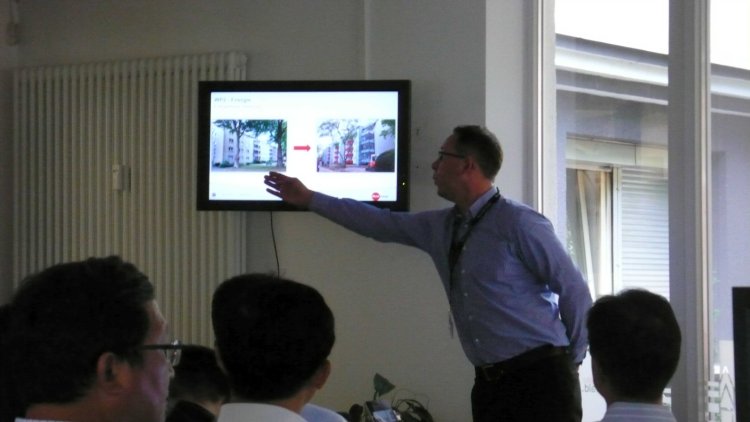
Presentation of Demonstration Buildings before and after refurbishment
During the tour of the settlement, the participants visited the facilities and were able to ask technical questions.
Particularly interesting for the engineers was the new “Siedlungsmanagement” software (virtual power plant). The approach of saving as much energy as possible in a building as well as implementing intelligent control for a larger number of buildings will be examined by some representatives for their projects in China. There was mutual interest in pursuing this knowledge exchange in the future.
SmartCity conference in Esch-sur-Alzette
In mid-September, Cologne had the chance to present GrowSmarter at the SmartCity conference in its twin city, Esch-sur-Alzette, Luxemburg. Esch-sur-Alzette is planning to develop models for the cross-border region with Belgium and France.
The Cologne process of choosing the data platform and urban cockpit was of particular interest for Esch-sur-Alzette. The city is planning to implement a uniform digitalisation strategy for the entire region. Everyone was convinced that a smart city can only be realised with an integrated approach.
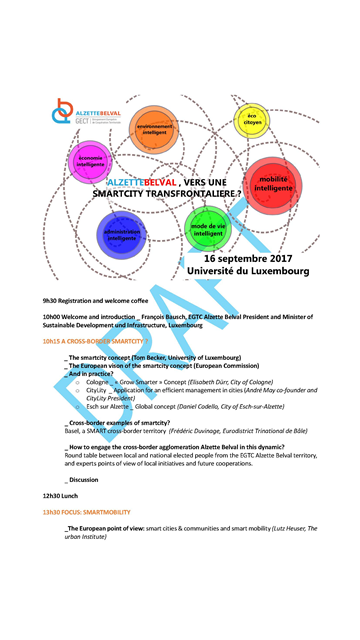
Action area 1: Low-Energy Districts
To see all the measures to be implemented, click here
The first construction phase In the Stegerwaldsiedlung section is completed with the exception of final connection work to the Siedlungsmanagement. Phases 2 and 3 have started construction as well. This City of Cologne website shows an interactive map (in German) of the current planned and/or implemented scope of work on each of the buildings.
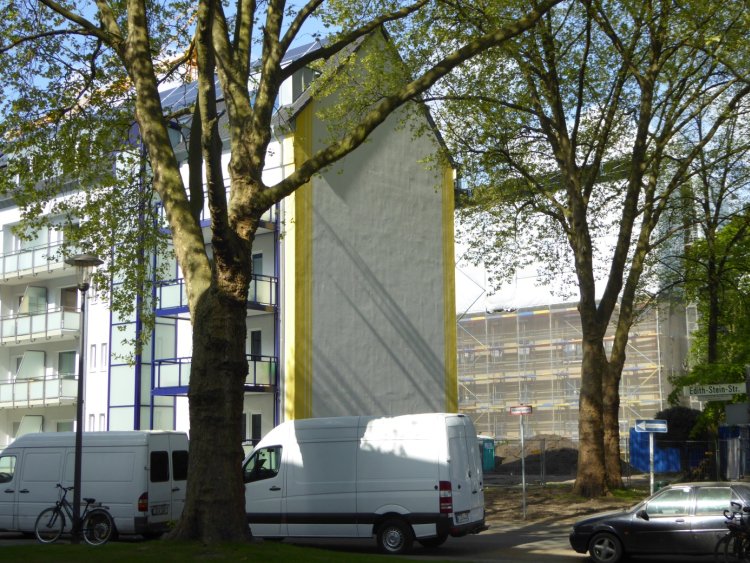
First (foreground) and second (background) phase of construction at the Stegerwaldsiedlung
The heat pumps have been connected by the RheinEnergie. The first battery storage sets are also installed.
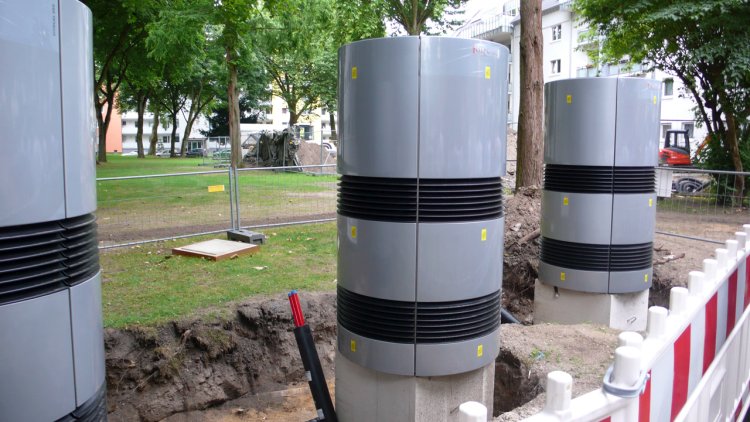
Air heat pumps at the Stegerwaldsiedlung
The RheinEnergie is planning to conduct an informational event for the tenants in November and December to further present and explain the RheinEnergie products Mieterstrom and SmartHome. Tenants who agree to install the SmartMeter equipment will also receive Smart Home.
Action area 2: Integrated Infrastructures
To see all the measures to be implemented, click here.
We have made great progress in this area convincing partners that sharing their data for GrowSmarter will be beneficial for all.
In August of 2016 we reported about the Cologne open data platform (www.offenedaten-koeln.de). This was in place before GrowSmarter, but it offers a comprehensive database, which can be used for the project.
Some very interesting records of the KVB could be included in the open data platform (www.offenedaten-koeln.de/dataset/og_group_ref/37972). It becomes evident that data from our partner KVB is not only a benefit for GrowSmarter but the entire open data community.
For example, errors or failures in the escalators and lifts at the railway stations can be called up in real time. With these data, it is possible to individually define an accessible, personalised route before starting a journey. The data can also be used to ensure that the departure from a platform is possible without complications during the journey. The use of railway is therefore more attractive for people with limited mobility or mothers with baby carriages, for example. We have thus taken another step towards stimulating the population in rethinking their choice of transport.
For the individual data sets we distinguish between dynamic and static data; this is dynamic data:
http://www.offenedaten-koeln.de/dataset/og_group_ref/1613
Our partner [ui!] - the urban institute is now working on integrating multiple data streams into the urban cockpit.
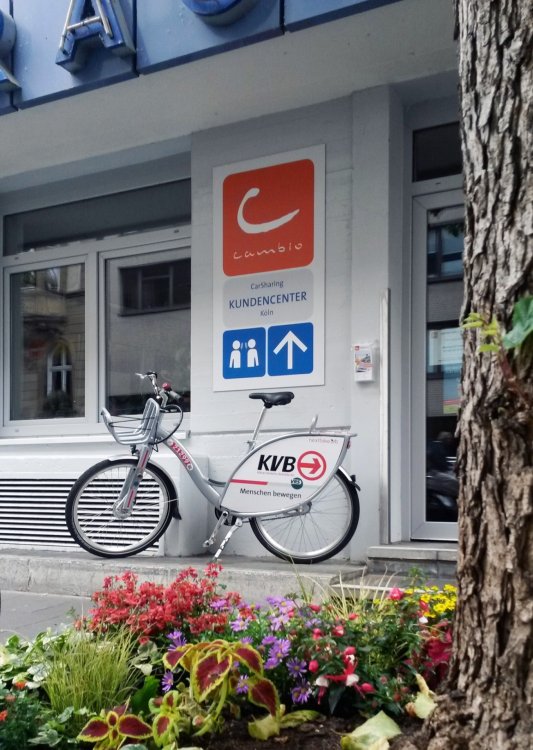
Cambio CarSharing and KVB Bike
Action area 3: Sustainable Urban Mobility
To see all the measures to be implemented, click here.
Almost all mobility stations are now fully operational. The mobility stations are easily accessible by foot, bus and/or train. The first experiences show that the stations are accepted among transport users.
With the exception of one station, the RheinEnergie charging stations are implemented. All charging stations have two charging points. All stations also include a Cambio CarSharing station. The industrial partner KVB was able to find a suitable partner for the E-bikes procurement, and by the end of the year 10 e-bikes are planned to be implemented. They will be installed at the sites Charles de Gaulle Platz, Mülheim train station and the Stegerwaldsiedlung. Ampido is represented at two of the three main mobility stations so far.
The current situation at each of the stations is presented below:
Charles-de-Gaulle Platz
The Charles-de-Gaulle Platz provides 5 spaces for CarSharing cars (3 conventional cars, 2 e-cars), 12 bikes (7 conventional, 5 e-bikes), 4 Ampido parking spaces and 4 charging stations. This location also provides a public charging station with two charging points for the general public.
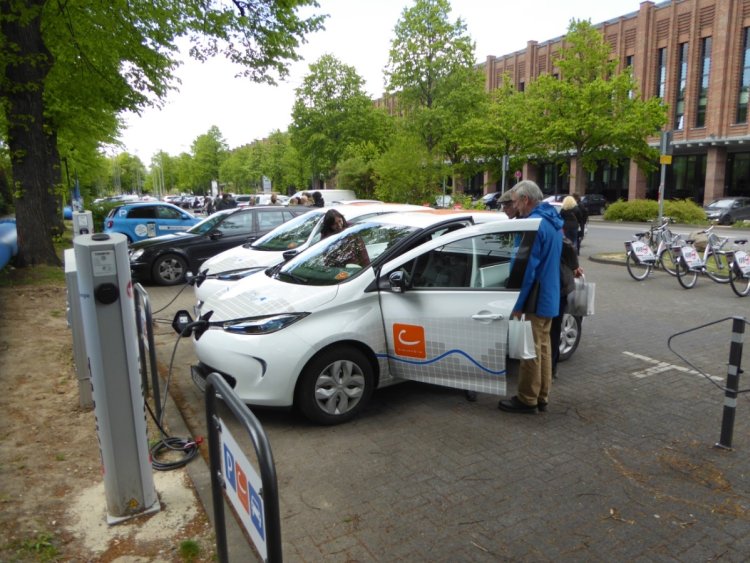
Charles-de-Gaulle Platz carsharing, charging stations, parking sharing and bikes
In 2015, the conversation between the City of Cologne and the state legislation regarding unified coordinated signage for the mobility stations thorughout the state started to take shape. This development is unique and has influenced the region’s cities and communities in using the same language of signage in their development of mobility stations.

Charles-de-Gaulle Platz mobility station signage
Train station Bahnhof Mülheim
Fully equipped, this station has 5 carsharing spaces (3 conventional, 2 e-cars), 2 charging stations, 15 Bikes (10 conventional, 5 e-bikes).
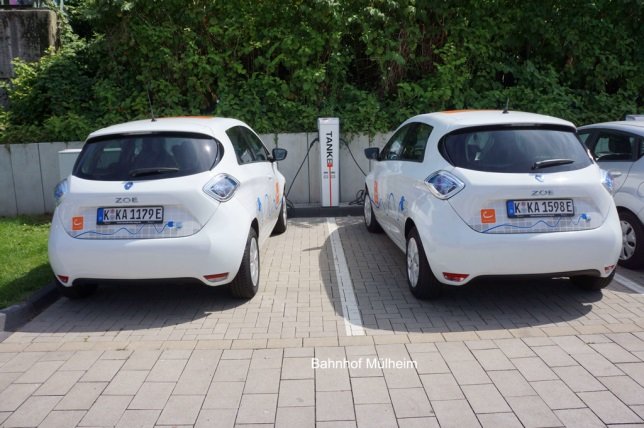
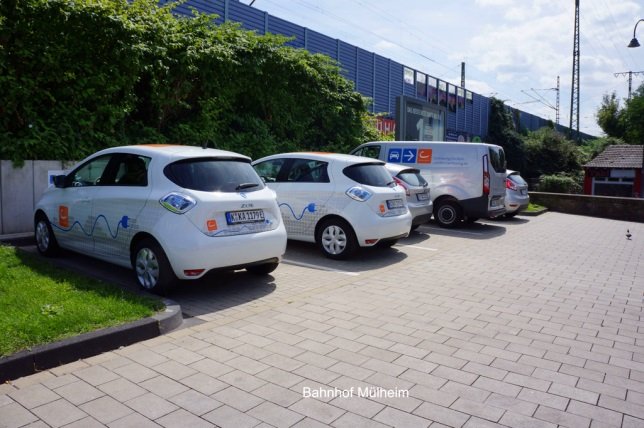
Regentenstrasse
At this station 4 carsharing spaces (2 conventional cars, 2 e-cars) and 1 charging station are in operation.
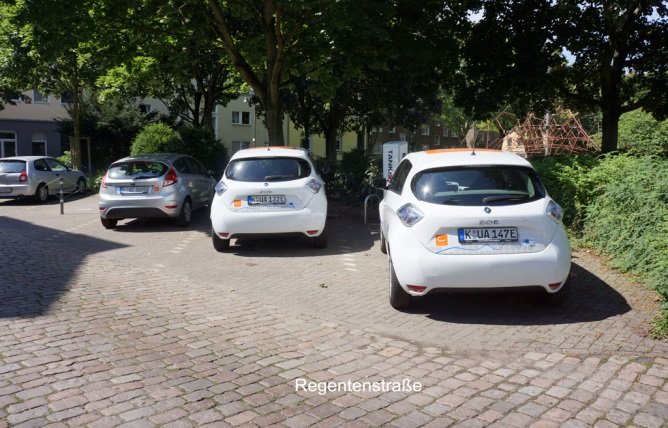
Regentenstrasse CarSharing and charging station
Stegerwaldsiedlung
At the Stegerwaldsiedlung mobility station, where all GrowSmarter energy measures are implemented, 4 carsharing spaces (2 conventional cars, 2 e-cars) and 2 charging stations are already in place. Two Ampido parking spaces and 8 bikes (4 conventional, 4 e-bikes) will be located here by the end of 2017.
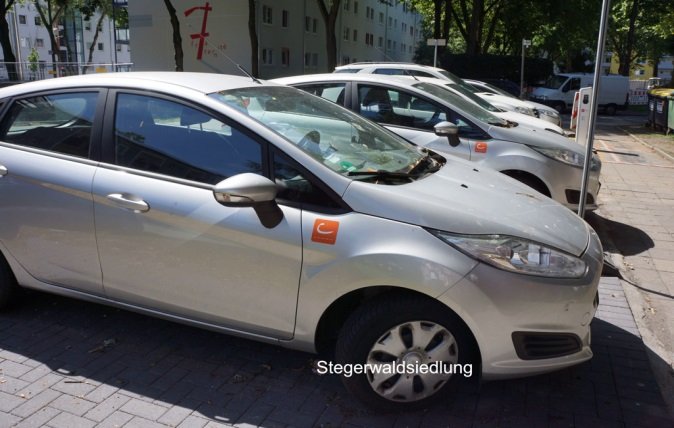
Stegerwaldsiedlung carsharing and charging station
von-Sparr-Strasse
At this location residents can use 4 carsharing cars (2 conventional cars, 2 e-cars) and 1 charging station.
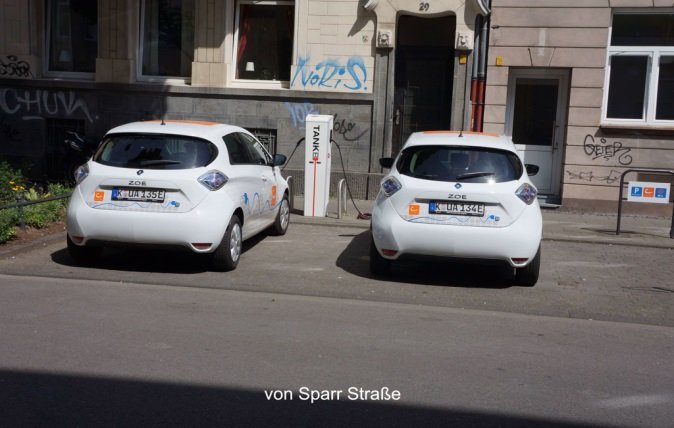
Von-Sparr-Str. carsharing and charging station
Höhenhaus, Am Emberg
Six spaces for carsharing cars (4 conventional cars, 2 e-cars) are located at this site. Whether a charging station can be installed is currently under investigation.
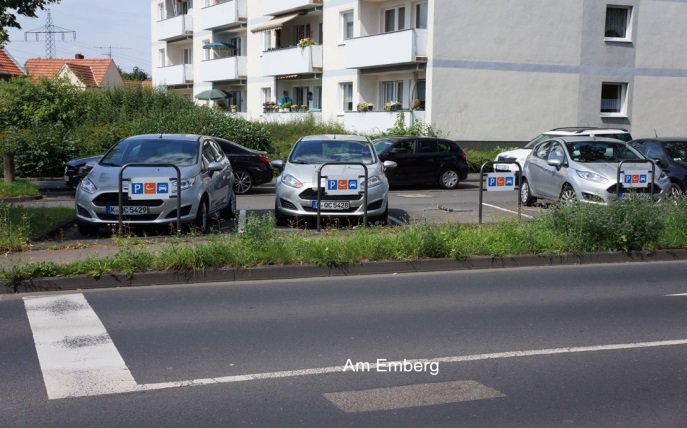
Höhenhaus, Am Emberg carsharing spaces
The industrial partners KVB and Cambio are expecting a much greater use of the mobility stations after the introduction of the mobility card.
Users of public transport must have the possibility to use bus, tram (lightrail), bicycles and passenger cars with one ticket. Cambio and KVB are currently developing a so called “Mobiltätskarte (Mobilticket)”, an enhancement of the already existing subscription ticket. With this “Mobiltätskarte” travellers will be able to use bus, trams, bicycles and carsharing cars with their normal ticket.

e-Ticket as demonstration object on a Cambio carsharing car
| Discussed in this blog Solution 1: Efficient and smart climate shell refurbishment Solution 3: Smart energy-saving tenants Solution 4: Smart local electricity management Solution 11: Alternative fuel-driven vehicles Solution 12: Smart mobility solutions |
|---|
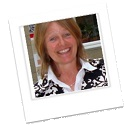 Barbara Moehlendick
Barbara Moehlendick
Site Manager, Cologne
For the previous blog post, click here



